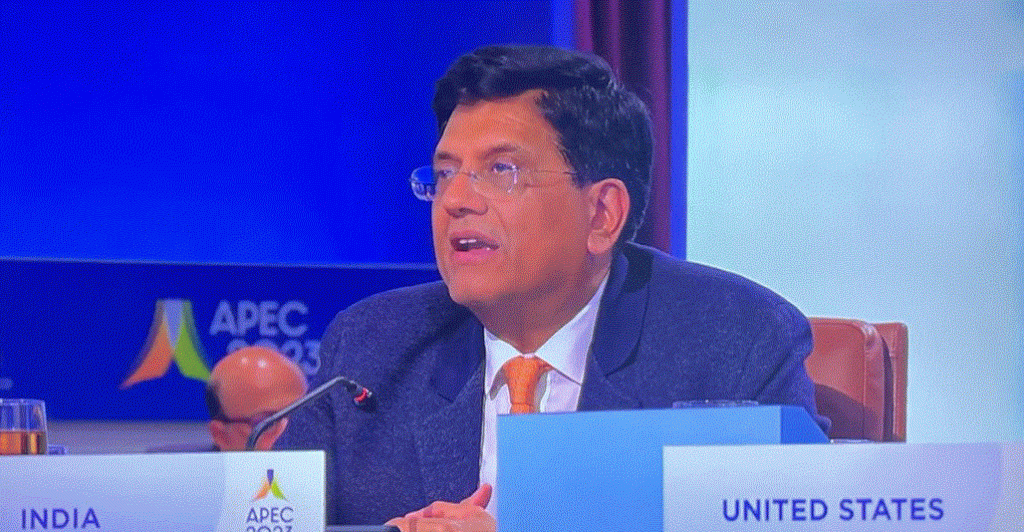San Francisco: The US India Business Council (USIBC) and the Confederation of Indian Industry (CII) this week organised an industry-driven collaborative effort between the US and India, promoting innovation and fostering the development of critical and emerging technologies.
The collaborative effort was organised on the sidelines of the Asia-Pacific Economic Cooperation (APEC) Leadership Summit here.
Addressed by US Secretary of Commerce Gina Raimondo and Minister of Commerce and Industry Piyush Goyal, the inaugural discussion roundtable on “Decoding the Innovation Handshake,” was attended among others by Suzanne Clark, president and CEO of the US Chamber of Commerce, and Chandrajit Banerjee, Director General of CII, in the presence of American and Indian private sectors, respectively, alongside founders and c-suite executives from over thirty American and Indian companies.
“The US Chamber of Commerce is proud to be a part of this new initiative to increase innovation and collaboration between the US and India. With the launch of the ‘Innovation Handshake’, both Washington and New Delhi are demonstrating a renewed commitment to the partnership needed to unlock the technology of tomorrow,” said Clarke.
“Fuelled by free enterprise and enabled by pro-growth policies, this new initiative will ensure the US and India work together to reward those who develop solutions to serve customers, solve problems, and strengthen society,” she said.
The ‘Innovation Handshake’, a concept developed under the US-India Commercial Dialogue, was announced as a key component of the bilateral summit held between US President Joe Biden and Prime Minister Narendra Modi in Washington in June.
The handshake aims to catalyse deeper connectivity and integration of America’s and India’s innovation ecosystems, from academia and research institutions to government and industry cooperation, said a media release issued by USIBC and CII.
According to the media release, the inaugural roundtable presented the opportunity for political and industry leaders to hear firsthand the steps required to ensure both democracies can continue leading the way globally in critical areas, including artificial intelligence, quantum computing, defence, semiconductors, space and geospatial technologies, telecommunications, supply chains, and clean energy.
The roundtable also addressed how private equity and venture capital are crucial in accelerating and promoting innovation while delivering scalable and commercially viable solutions to global challenges.
“Through the Innovation Handshake, the United States and India are forging a critical tech partnership that will further strengthen our interconnected innovation ecosystems,” said Raimondo.
“This is an important step to bolster the US-India commercial relationship, and I look forward to building on this progress with Minister Goyal to help US And Indian workers and businesses succeed,” she said.
“The Innovation Handshake signals a joint commitment to strengthen the startup ecosystem and promote cooperation in Critical and Emerging Technologies between India and the United States,” said Minister Goyal.
A CII-led delegation of entrepreneurs and innovators from across India also participated in the programme, highlighting specific opportunities and recommendations that would ease operational and early-stage challenges faced by startups in both markets.
Banerjee, Director General of CII, said: “Today exemplifies what’s possible when government and industry work collaboratively and in consultation. In many ways, the startup ecosystem created in India is only made possible through our government’s digital public infrastructure priorities.”
“We stand ready to further the technological convergence, especially on Research and Development collaboration, product fitment and testing opportunities, and enabling access to capital between India and the US through this Innovation Handshake,” he said.
PTI
